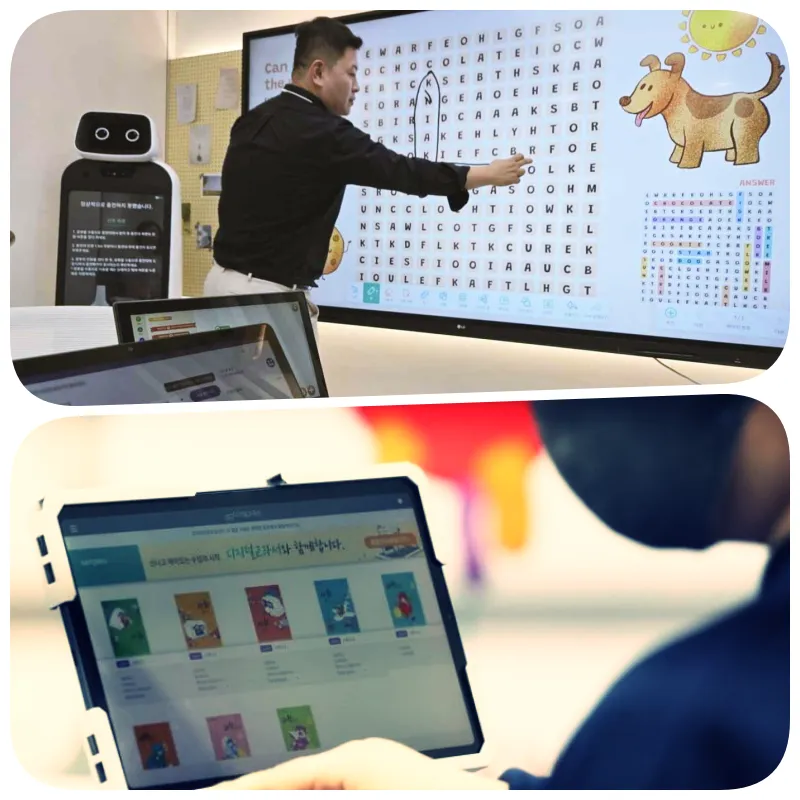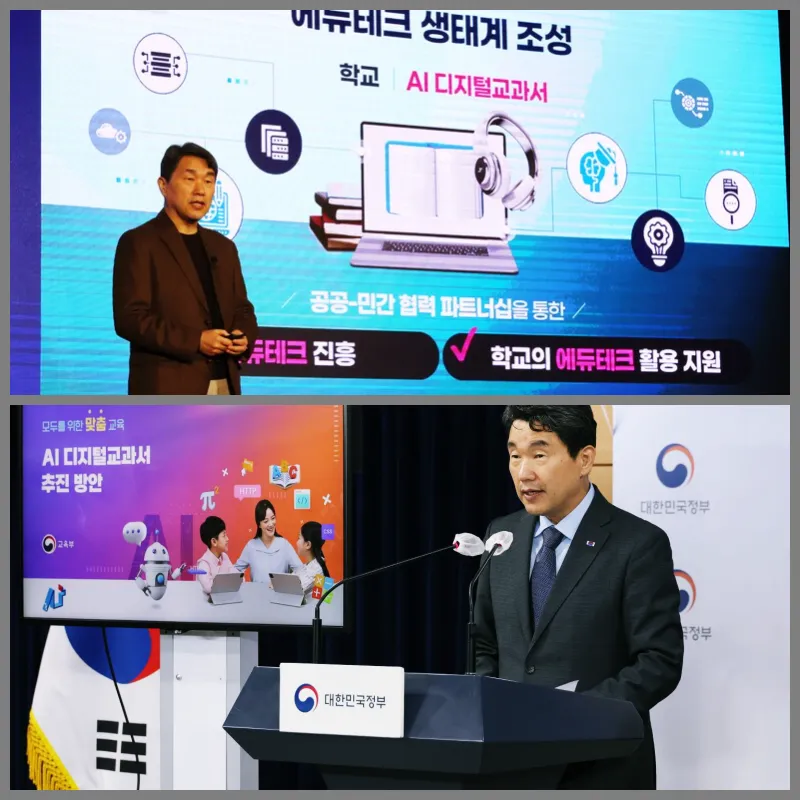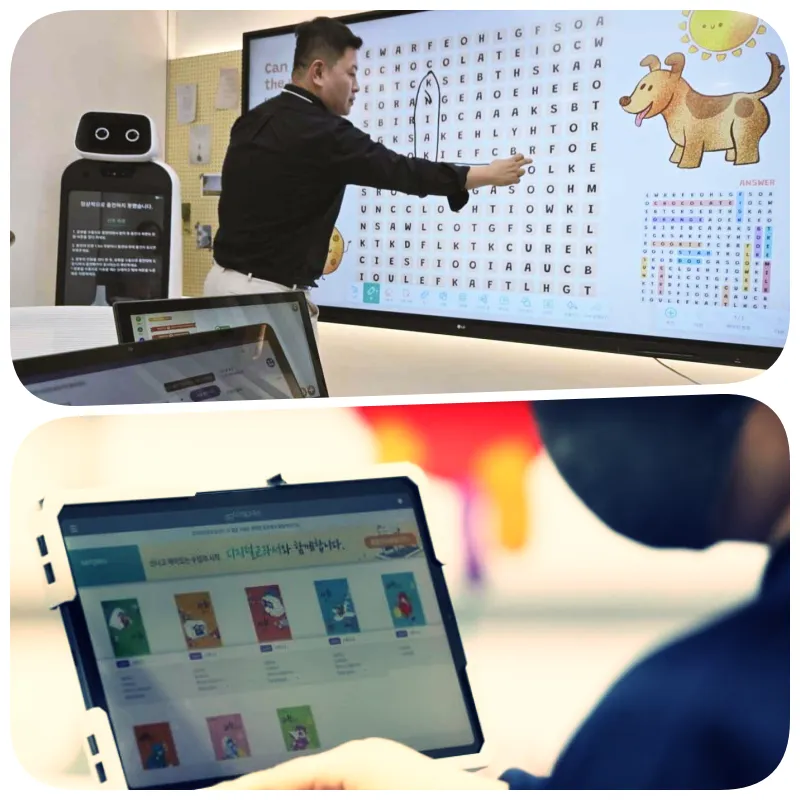
“South Korea’s ambitious plan to introduce AI-powered textbooks in schools has sparked significant controversy among parents and scholars. The proposal, aimed at overhauling the country’s education system, raises concerns about excessive screen time and the accuracy of information provided by AI”
The AI Textbook Initiative: Based on Education Minister Lee Ju Ho, the digital textbooks—essentially AI-equipped tablets—will play a pivotal role in transforming South Korea’s educational framework. Starting in 2025, third and fourth graders, along with seventh graders, will be the first to use these digital resources. Fifth, sixth, and eighth graders will follow in 2026, and ninth graders will join in 2027. To ease the transition, both traditional print textbooks and digital ones will be used simultaneously until 2028.
South Korea has consistently ranked high in international student assessments by the OECD. However, the government is concerned that rote learning is stifling innovation, especially as the country seeks to reduce reliance on traditional manufacturing sectors.

Minister Lee advocates for a shift from one-way teaching methods to a digital environment where students actively engage in and control their learning process. “2025 will be a crucial year for this change, and we need to leverage AI textbooks to assist teachers in adapting their lessons,” he said.
How AI Textbooks Will Work: The South Korean Ministry of Education plans to use AI to tailor educational content based on students’ learning speeds and needs. While the tablets will be able to adjust the complexity of assignments, details on how the AI will function and manage potential errors are still unclear.
By 2028, AI applications are expected to be integrated across all subjects except music, arts, physical education, and ethics. Teachers will monitor activities through a digital dashboard, and students will be educated on responsible use of AI tools.
“Ai textbooks will allow teachers to assess each student’s level and learning pace through data, offering a personalized education experience,” a government official told the Financial Times.
The goal is to address issues where students, having already learned material through private tutoring, may become disengaged or fall behind. AI textbooks are envisioned to enhance engagement by providing diverse content and fostering creative thinking.

Parental Concerns: Despite the government’s intentions, many parents are troubled by the proposal, fearing that increased screen time could negatively impact their children’s cognitive development, attention span, and problem-solving abilities.
Professor Shin Kwang Young from Chung-Ang University criticized the plan as hasty, suggesting that it fails to adequately consider potential side effects just because AI is a current trend. Over 50,000 parents have signed a petition urging the government to focus more on students’ overall health.
Lee Sun Young, a mother of two school-age boys, expressed concern that excessive use of digital devices could harm brain development and concentration.
Teacher Reactions: In contrast, many educators are supportive of the AI textbook initiative. A survey by the Korean Federation of Teachers revealed that 54% of public school teachers back the proposal.
South Korea’s approach diverges from trends in other developed countries, where governments are moving to restrict smartphone and tablet use in schools. Professor Shin warns that AI in classrooms could lead to misinformation, plagiarism, and data privacy issues.
In the words of valid concerns about rote learning requires a thorough overhaul of the education system, including assessment methods, Professor Shin added.



